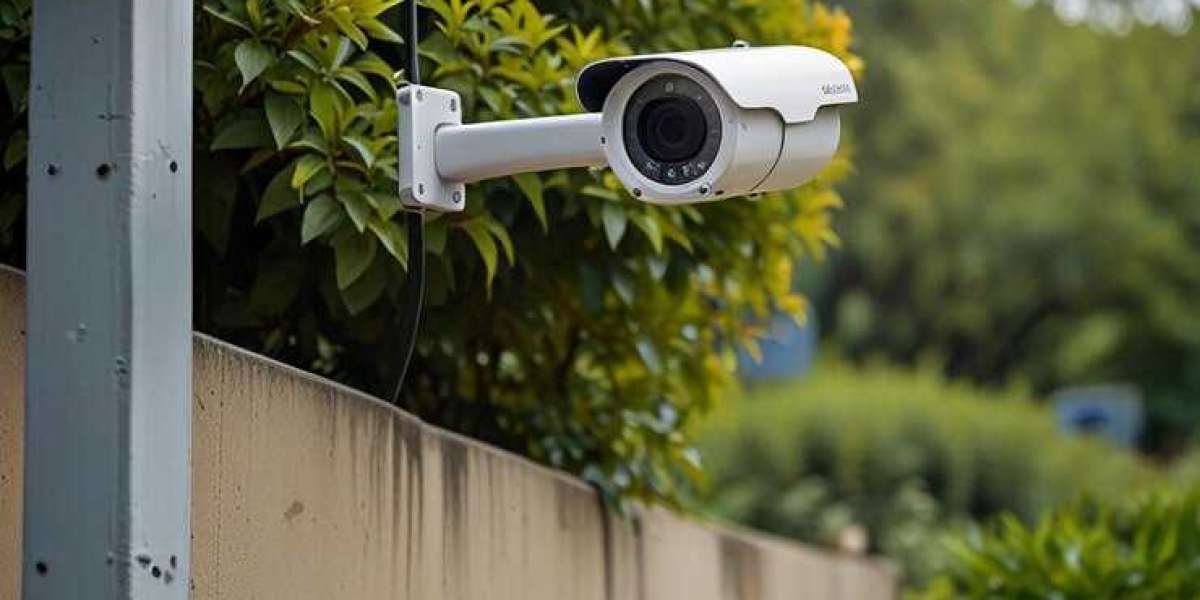In today's world, ensuring security and safeguarding property has become a necessity. A reliable CCTV security camera system plays a crucial role in monitoring premises, preventing unauthorized access, and keeping an eye on valuable assets. Whether for a home, business, or jobsite, modern CCTV systems offer a range of features that enhance safety and provide peace of mind.
What is a CCTV Security Camera System?
A CCTV security camera system is a combination of cameras, recording devices, and monitors that provide live or recorded video footage. CCTV stands for Closed Circuit Television, meaning that unlike broadcast television, the signal is not openly transmitted, but is available only to connected devices. These systems can be found in various environments, including homes, businesses, public areas, and high-security sites such as job locations and construction sites.
CCTV systems generally consist of several elements:
- Cameras to capture video footage.
- Recorders (DVR or NVR) to store video.
- Monitors for viewing live or recorded footage.
- Cabling or wireless systems to transmit video signals.
Types of CCTV Cameras
When selecting a CCTV system, choosing the right type of camera for your needs is essential. There are several types available, each suited for specific environments and purposes.
1. Dome Security Cameras
Dome cameras are commonly used in retail stores, businesses, and homes. Their design makes them less noticeable and harder to tamper with since the camera is encased in a protective dome. They are typically used for indoor monitoring but can also be designed for outdoor use.
2. PTZ Security Cameras
PTZ (Pan-Tilt-Zoom) cameras allow users to remotely control the camera’s movement and zoom in on objects or areas of interest. These are often used in larger areas such as parking lots or open jobsite locations. PTZ cameras can cover vast areas due to their flexibility in movement, making them ideal for monitoring construction sites, warehouses, and high-security zones.
3. Axis Security Cameras
Known for their high performance, Axis security cameras are often deployed in demanding environments that require high-resolution footage and durability. They offer a range of models that are suitable for various scenarios, including indoor and outdoor use, making them popular in business and commercial applications.
4. Pelco CCTV Cameras
CCTV camera Pelco is another widely recognized name in the security industry. Pelco cameras are known for their durability and innovative design, with options that range from bullet and dome cameras to panoramic and high-resolution cameras. Pelco’s advanced models are often used in areas that require continuous monitoring, such as airports and transportation hubs.
Applications of CCTV Systems in Different Settings
CCTV systems are versatile and used in a variety of settings. Here’s a closer look at their applications across different sectors.
1. Home Security
For residential security, CCTV systems help in monitoring the home’s exterior, detecting intruders, and keeping an eye on property even when the homeowners are away. Features like night vision and motion detection make CCTV systems particularly useful in home environments.
2. Commercial Security
In commercial environments such as stores, offices, and warehouses, CCTV systems deter theft, help with crowd management, and provide essential evidence in case of incidents. Having video surveillance increases accountability for employees and customers, reducing the chances of fraudulent claims or internal theft.
3. Jobsite Security Cameras
One of the critical uses of jobsite security cameras is to protect construction sites from theft, vandalism, and unauthorized access. These sites are often vulnerable due to the presence of expensive equipment and materials. With jobsite cameras, site managers can remotely monitor the area, ensuring the safety of the site even after work hours.
Choosing the Right CCTV Security Camera System
Selecting the right CCTV system depends on a few factors, such as the size of the area to be monitored, environmental conditions, and specific security needs. Here's a breakdown of considerations to help make the best decision.
1. Camera Resolution
The resolution of a camera determines the clarity of the video footage. For larger areas or environments where identifying faces and details is crucial, high-resolution cameras, like those offered by Axis security cameras, are recommended.
2. Indoor or Outdoor Use
Cameras designed for outdoor use are built to withstand harsh environmental conditions such as rain, wind, and extreme temperatures. On the other hand, indoor cameras focus more on compactness and aesthetic appeal without sacrificing functionality.
3. Wired or Wireless Systems
Wired systems are typically more stable and offer better quality footage without interference. However, they require proper cabling infrastructure, which can be more expensive and difficult to install. Wireless systems are easier to set up and more flexible but can be susceptible to interference and may require a stronger network connection.
4. Storage Needs
For those who need to retain footage for longer periods, consider systems with larger storage capacities or cloud-based storage. High-resolution video requires more storage, so investing in an NVR or DVR that supports adequate capacity is vital.
5. Scalability
Businesses, especially in commercial or industrial settings, often require systems that can be scaled as their operations grow. Choose a system that allows you to add more cameras and storage devices over time, without having to overhaul the entire setup.
Installation Best Practices
Whether you’re installing a security system for your home, business, or jobsite, the following tips will ensure optimal performance and coverage:
- Camera Placement: Position cameras to cover entry points, blind spots, and areas of high activity. Avoid placing cameras too high or too low to maintain a clear view of faces and actions.
- Lighting: Ensure adequate lighting in the monitored area. Cameras with night vision or low-light performance are essential for 24-hour surveillance in poorly lit areas.
- Maintenance: Regularly inspect and maintain your CCTV cameras. Clear any obstructions, such as foliage or dirt, from the lenses, and ensure the system is free from technical glitches.
The Future of CCTV Security Systems
As technology advances, CCTV systems are becoming smarter and more efficient. Artificial intelligence (AI) and machine learning are being integrated into these systems, enabling features such as automatic threat detection, facial recognition, and advanced analytics. This evolution makes CCTV systems even more powerful tools for ensuring safety and security in various environments.
Conclusion
Investing in a CCTV security camera system is one of the most effective ways to protect your home, business, or jobsite. By selecting the right cameras, such as Axis security cameras, CCTV camera Pelco, or jobsite-specific solutions, you can tailor the system to meet your specific security needs. Whether it's for monitoring a residential property or securing a construction site, a robust CCTV system provides peace of mind and an extra layer of protection.
For more information and professional guidance on selecting the best system for your needs, reach out to trusted suppliers like Backstreet Surveillance to help you make an informed decision.








